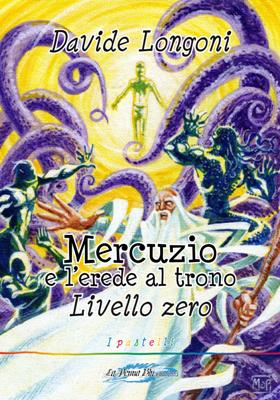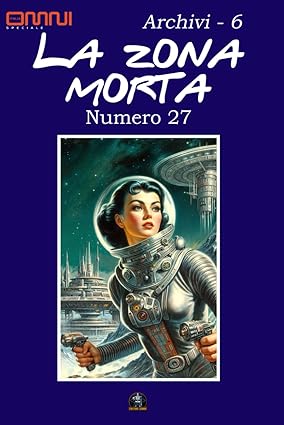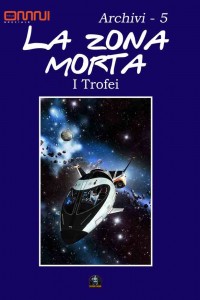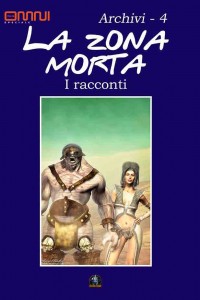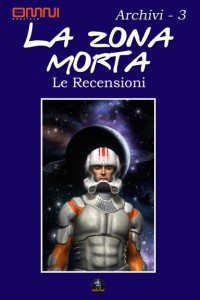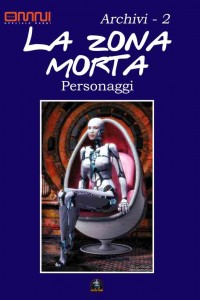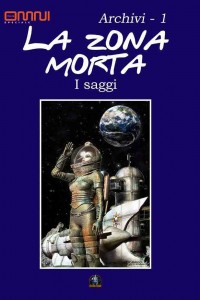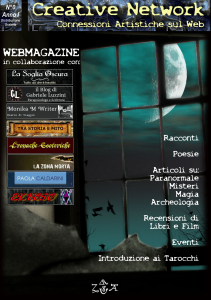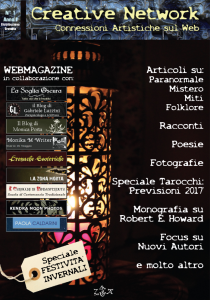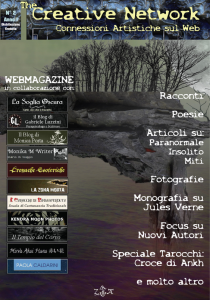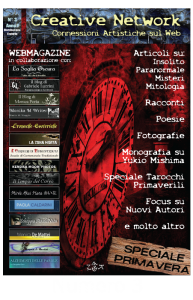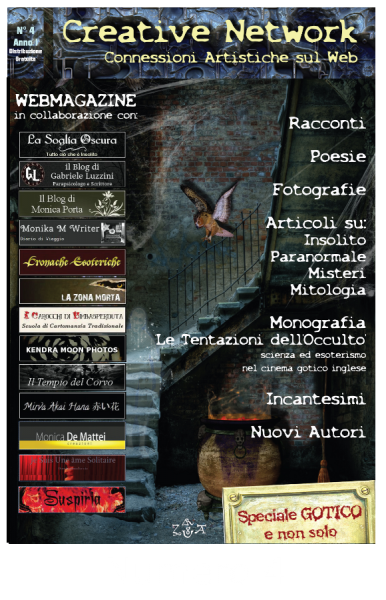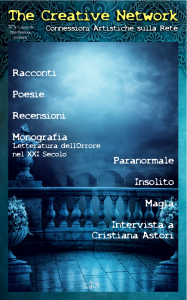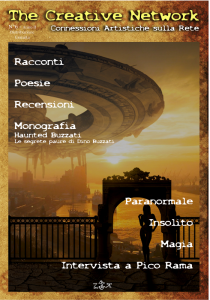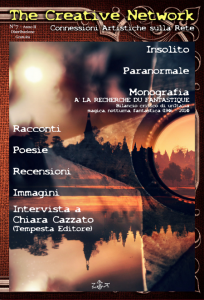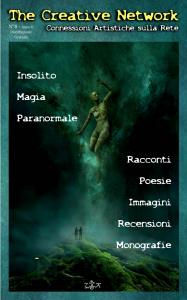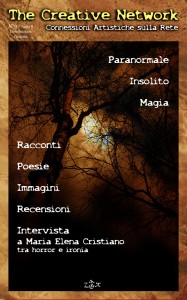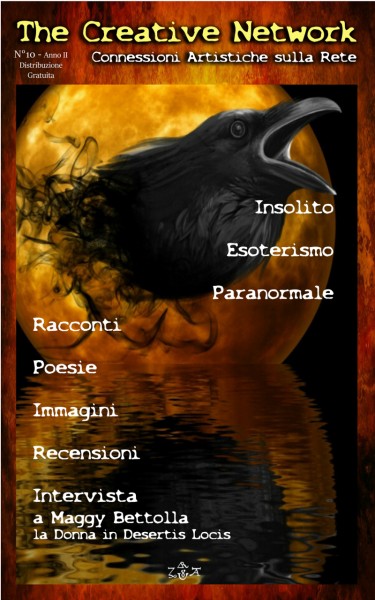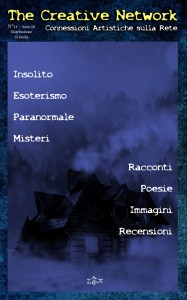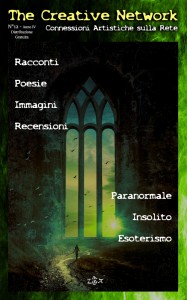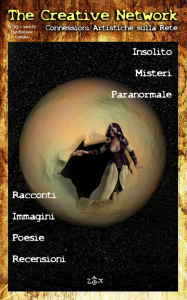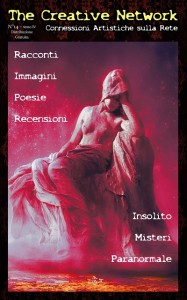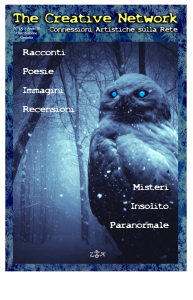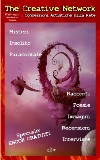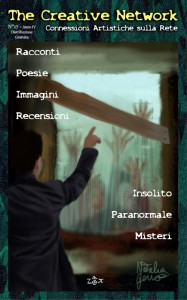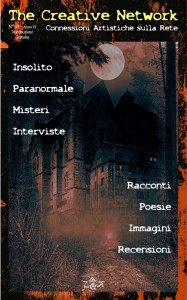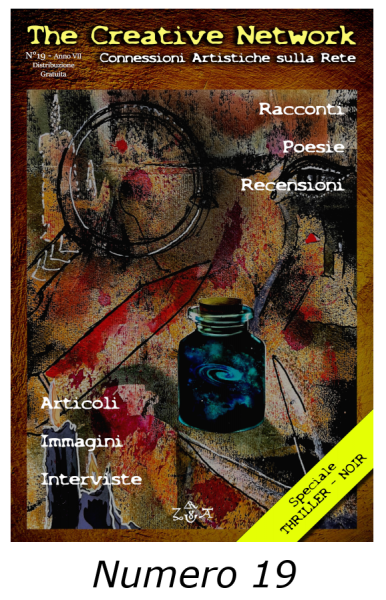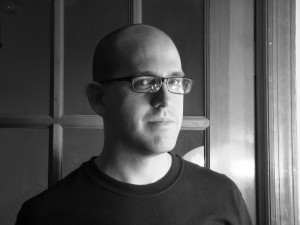 E’ la prima volta che ci troviamo a intervistare uno scrittore dalla “doppia personalità”, nel senso che abbiamo dovuto contattare il “vero” scrittore per parlare con il suo alter-ego: è quello che ci è successo con Joshua Gaylord… ma la nostra chiacchierata è stata fatta con Alden Bell, di cui a breve in Italia uscirà per i tipi di Delos Books il primo romanzo della saga “Reapers” (in italiano si potrebbe tradurre come “I Mietitori”), intitolato “Angeli e Zombie”… e già dal titolo potete capire tutto! E’ stata un’esperienza veramente interessante… ecco com’è andata!
E’ la prima volta che ci troviamo a intervistare uno scrittore dalla “doppia personalità”, nel senso che abbiamo dovuto contattare il “vero” scrittore per parlare con il suo alter-ego: è quello che ci è successo con Joshua Gaylord… ma la nostra chiacchierata è stata fatta con Alden Bell, di cui a breve in Italia uscirà per i tipi di Delos Books il primo romanzo della saga “Reapers” (in italiano si potrebbe tradurre come “I Mietitori”), intitolato “Angeli e Zombie”… e già dal titolo potete capire tutto! E’ stata un’esperienza veramente interessante… ecco com’è andata!
PENSO SI POSSA INIZIARE DAL PRINCIPIO: CHI E’ JOSHUA GAYLORD E CHI E’ ALDEN BELL?
Joshua Gaylord è un tizio che vive in un sobborgo di New York con il suo gatto, che insegna inglese al liceo, che mangia un sacco di panini e guarda un sacco di televisione, e che occasionalmente scrive un libro con pretese letterarie. Alden Bell è più o meno lo stesso, tranne per il fatto che ha una sapienza pericolosa.
COME MAI HAI SCELTO DI SCRIVERE CON UNO PSEUDONIMO?
E’ stata una decisione di marketing fatta dal mio editore. Il mio primo libro (“Hummingbirds”, in italiano “Colibrì”) è stato pubblicato con il mio vero nome, e parlava di una scuola di preparazione per ragazze nella moderna Manhattan. Era molto caratteristico e tradizionale, e non c’era uno zombi che si vedesse da nessuna parte. Quando ho mostrato il mio secondo libro al mio agente e al mio editor, convennero che a pubblicarlo con il mio nome si sarebbe corso il rischio di alienare i lettori del mio primo libro. L’idea era che, poiché mi piace scrivere due tipi molto diversi di libri (“letterario” e “di genere”), avrei dovuto avere due nomi diversi per riflettere questi stili. Ma entrambi questi stili sono parte di me, e spero che qualche lettore avrà orizzonti sufficientemente ampi da poter essere interessato a entrambi gli aspetti allo stesso modo.
COME HAI COMINCIATO A SCRIVERE?
Ho iniziato a scrivere storie quando ero molto giovane – probabilmente a sette o otto anni. Erano strani miscugli che contenevano curiose crisi esistenziali, di solito avvolte nel guscio di una storia del mistero o di una storia horror. Una di queste parlava di alcuni campeggiatori californiani che scoprono un pozzo nel terreno che conduce direttamente all’inferno. Era intitolata, abbastanza appropriatamente, “Il pozzo del diavolo”. C’era un’altra serie di storie su un bambino detective che risolveva casi come “Il caso della bottiglia rubata”. Ma perché ho cominciato a scrivere? In realtà per due motivi. Il primo è che mio fratello maggiore era al liceo, e si credeva uno scrittore, e io volevo essere come lui. Il secondo è che ho sempre amato leggere – Amavo viaggiare attraverso i libri, fin da quando ero un bambino molto piccolo. Se si ama abbastanza la lettura, alla fine ci si sente costretti a essere una delle persone che crea i mondi invece di essere solo uno dei viaggiatori che li esplora.
VUOI PARLARCI DEI TUOI PRECEDENTI LAVORI?
Il mio primo libro, “Hummingbirds”, è la storia di due insegnanti di sesso maschile che si prendono cura dei loro studenti e delle colleghe di sesso femminile in una scuola superiore privata per ragazze a New York. E’ stato ispirato un po’ dalle mie esperienze di insegnamento, ma anche dalla mia ammirazione per gli insegnanti che dura da una vita. Posso indicare due o tre insegnanti nella mia vita che hanno avuto un’enorme, sconquassante influenza su di me. Ho sempre pensato che gli insegnanti avessero un particolare tipo di potere simile a quella dei mistici o dei profeti, e ho voluto scrivere di quel potere – sia nel bene che nel male.
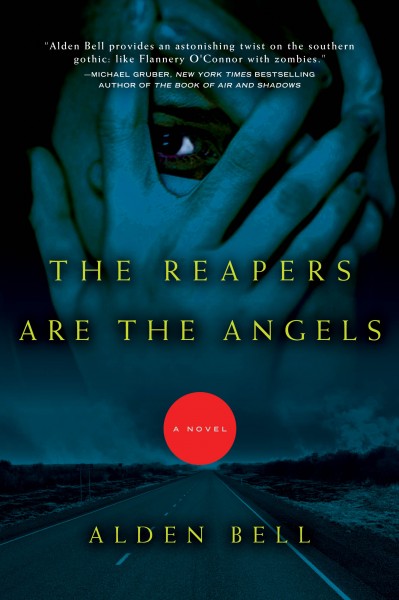 COME ALDEN BELL, I TUOI LIBRI PIU’ FAMOSI SONO LA SAGA DEI “REAPERS”. COSA PUOI DIRCI IN MERITO?
COME ALDEN BELL, I TUOI LIBRI PIU’ FAMOSI SONO LA SAGA DEI “REAPERS”. COSA PUOI DIRCI IN MERITO?
Sono sempre stato un fan dei film sugli zombi. Ricordo che guardavo “Dawn of the Dead” (in italiano “Zombi”) e “The Evil Dead” (in italiano “La casa”) quand’ero bambino con mio padre. A causa del coinvolgimento da una vita con i non morti, pensai che forse avrei dovuto scrivere un libro sugli zombi. Di solito il genere è caratterizzato dalla nostalgia, persone che guardano indietro com’era il mondo di una volta. Sono sopraffatte da un senso di perdita. Ma la mia opinione sul genere era un po’ differente. Quando guardavo quei film, non percepivo perdita. Ho sempre pensato che sarebbe stato bello se tutto fosse stato spazzato via come una tabula rasa. Dopo una devastazione completa, si ha la possibilità di costruire qualcosa di veramente nuovo e originale. Così, ho voluto scrivere un libro che si svolge 25 anni dopo l’apocalisse zombi. Il personaggio principale ha quindici anni (si chiama Temple, ndr). Non ha mai nemmeno conosciuto il mondo prima, così lei non ha un senso di nostalgia o di aver perso qualcosa. Questo è solo il suo mondo. Lei è ottimista al riguardo. Lei ci vede bellezza in esso.
COME HAI INVENTATO LA STORIA E COME SI E’ SVILUPPATA LA SERIE?
All’inizio, “Reapers” doveva essere un libro unico. Non ho mai voluto che fosse una serie, perché non sono un grande fan dei libri che diventano franchising. Tendo a pensare che la maggior parte delle serie assecondino troppo il pubblico che sta cercando di leggere la stessa storia più e più volte con piccole variazioni. Per me, il divertimento della scrittura è quello di creare mondi e personaggi da zero. Scrivere un altro libro nello stesso mondo è come rimuovere una grande quantità di divertimento che per me come autore. Tuttavia, ho trovato che avevo di più da dire sul mondo gotico apocalittico del sud che avevo creato, così ho scritto “Exit Kingom”. Come un sequel, tuttavia, potrebbe deludere alcuni lettori, perché non ritorna Temple, la protagonista con cui c’è il collegamento in “Reapers”. Quindi è un sequel, ma, al tempo stesso, non è molto sequenziale.
QUALI SONO STATE LE DIFFICOLTA’ CHE HAI INCONTRATO NELLA CREAZIONE DEI PERSONAGGI E DELLE AMBIENTAZIONI?
Nello scrivere una storia di zombi, o qualunque storia che porti la bandiera di una particolare convenzione letteraria, esiste sempre la difficoltà di sapere quanto realmente si vuole rimanere nella convenzione rispetto a quanto in maniera ribelle si vuole andare contro di essa. Mi sentivo obbligato ad aggiungere alcuni elementi originali alla mitologia zombie, ma non sono sicuro che alla fine abbia funzionato. Il libro avrebbe potuto essere migliore senza quelle parti. (Ti lascerò immaginare quali parti voglio dire).
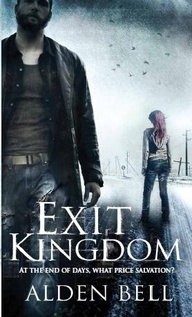 PERCHE’ UNA SERIE SUGLI ZOMBI?
PERCHE’ UNA SERIE SUGLI ZOMBI?
Sono sempre stato affascinato dall’evoluzione degli zombi nei film, dalle loro radici come figure mitiche del voodoo al loro picco culturale nelle mani di George Romero e Dario Argento, alla loro rinascita come aggressori che si muovono rapidamente in film come “28 giorni dopo”. Uno degli aspetti unici del genere zombi è che gli zombi, come mostri, tendono a funzionare molto più come sfondo o impostazione che come dispositivi di trama o personaggi. Le narrazioni zombi tendono a essere molto focalizzate sulla allegorica interazione umana e piuttosto trascurate nei confronti degli stessi zombi. Combinando convenzioni zombi con la tradizione gotica del sud (il libro è fortemente influenzato da Faulkner, Zora Neale Hurston, Cormac McCarthy, ecc.), il mio obiettivo è quello di dare i mostri generici una solennità, un’eleganza e una maestosità che, in quanto cadaveri consumatori di frattaglie, in genere non possiedono.
A NOVEMBRE I TUOI LIBRI SARANNO TRADOTTI IN ITALIA. COSA PENSI DEL NOSTRO PAESE?
Amo l’Italia. Ci sono stato solo una volta, molti anni fa – ma ho sempre voluto tornarci. Sono stregato dai ricordi di Firenze e Roma. E la mia visita a Pompei, quell’antica città fantasma, scotterà nel mio cervello per sempre. Ci sono pochi posti al mondo che occupano un posto così importante nel mio cuore. Così sto sperando che il mio libro abbia così tanto successo lì che qualcuno si degnerà di portarmici per una visita!
IN QUESTI ANNI HAI SEMPRE AVUTO UNA PREDILEZIONE PER IL FANTASTICO. CHE SIGNIFICATO HA PER TE QUESTA TEMATICA?
Il fantastico non è altro che una metafora della realtà. Amo le storie soprannaturali per lo stesso motivo per cui amo estremamente le storie realistiche: mi interessa esplorare le grandi domande della vita. Fondamentalmente penso che le storie di zombi possano rispondere alle grandi domande sull’universo con la stessa serietà (e anche la stessa pretesa, se questo è quello che si intende fare) dei romanzi di letteratura realistica.
ORA, UNA DOMANDA GENERALE. DOVE TROVI L’ISPIRAZIONE PER TUTTE LE TUE STORIE?
Credo che la maggior parte degli scrittori trovi l’ispirazione nello stesso posto: gli altri libri. Onestamente, la maggior parte di quello che scrivo è derubato a romanzi che ho adorato. Uno dei miei sogni è fare un’edizione con annotazioni di “Reapers” in cui segnalo tutti i riferimenti a Mark Twain, Cormac McCarthy, William Faulkner, Zora Neale Hurston, ecc. Questo libro è pieno fino a scoppiare di altri libri. Ecco dove prendo le mie idee. Posso essere seduto in un ristorante, mangiare un panino, leggere un libro – e penso: “Questo è un grande libro! Mi piacerebbe aver scritto questo libro. Forse posso scrivere questo libro. Se ci metto dentro gli zombi, nessuno mai lo riconoscerà!”.
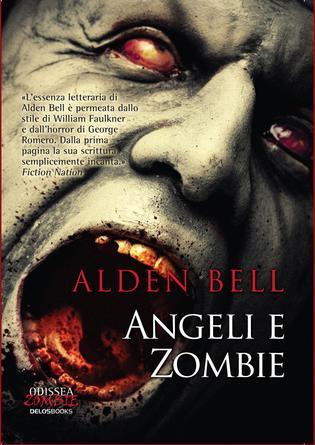 QUALI SONO I TUOI SCRITTORI PREFERITI?
QUALI SONO I TUOI SCRITTORI PREFERITI?
Per me questa è una risposta facile: William Faulkner supera tutti nelle mie preferenze. Non c’è proprio nessun altro che scrive come lui. Gli altri scrittori su cui continuo a tornare sono James Joyce, Joseph Conrad, Italo Calvino, Virginia Woolf, Neal Stephenson, Daniel Woodrell, Erskine Caldwell, Muriel Spark, Thomas Pynchon, Richard Brautigan e Cormac McCarthy.
E I TUOI FILM PREFERITI?
Tanti. Molta della mia scrittura è profondamente ispirata ai registi italiani, attualmente. Michelangelo Antonioni è uno dei miei preferiti, insieme a Fellini. In aggiunta a questi due, amo i film di Wim Wenders, Wes Anderson, Paul Thomas Anderson, i musical di Busby Berkeley e i film muti di Buster Keaton. Inoltre sono un immenso fan dei film horror di David Cronenberg, George Romero, Dario Argento e John Carpenter.
PARLANDO DI CINEMA, POSSIAMO ASPETTARCI QUALCHE LAVORO (FILM O SERIE TV) TRATTO DAI TUOI LIBRI?
“Reapers” è stato opzionato da una compagnia di produzione, quindi spero che alla fine raggiunga il grande schermo. Il regista che ha espresso interesse, Chris Milk, è un talento fantastico, così mi piacerebbe vedere cosa farebbe con la storia.
ULTIMA DOMANDA. CHE PROGETTI HAI PER IL FUTURO E QUALI SONO I TUOI SOGNI?
Ho un altro paio di libri su cui sto lavorando. Uno riguarda il sud della California nel 1975, e l’altro è sulla ferocia dell’adolescenza. Non sono sicuro di quali siano i sogni che ho. Non ho pensato ai sogni per molto tempo, perché mi sento fortunato ad aver realizzato quello che ho già compiuto. Se potrò avere un futuro che mi faccia rimanere sulla stessa strada come in passato, mi considererò un uomo felice.
ED E’ QUELLO CHE TUTTI CI AUGURIAMO PER CONTINUARE A LEGGERE TANTE NUOVE FANTASTICHE STORIE!
Ora, come nostra consuetudine, potete leggere di seguito la versione originale dell’intervista, chiedendovi scusa per eventuali imprecisioni nella traduzione.
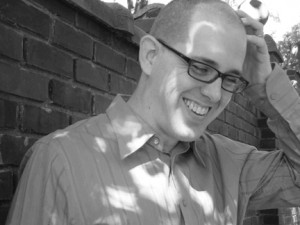 I THINK WE CAN START FROM THE BEGINNING: WHO’S JOSHUA GAYLORD AND WHO’S ALDEN BELL?
I THINK WE CAN START FROM THE BEGINNING: WHO’S JOSHUA GAYLORD AND WHO’S ALDEN BELL?
Joshua Gaylord is a guy who lives in a suburb of New York City with his cat, who teaches high school English, who eats a lot of sandwiches and watches a lot of TV, and who occasionally writes a book with literary pretensions. Alden Bell is pretty much the same, except he has dangerous wisdom.
WHY DID YOU CHOOSE TO WRITE WITH A PSEUDONYM?
This was a marketing decision made by my publisher. My first book (“Hummingbirds”) was published under my real name, and it was about a girls’ prep school in modern-day Manhattan. It was very quaint and traditional, and there was not a zombie to be seen anywhere. When I showed my second book to my agent and editor, they agreed that to publish it under my own name would be to risk alienating my reader of the first book. The idea was that since I like to write two very different kinds of books (“literary” and “genre”), I should have two different names to reflect those styles. But both those styles are part of me, and I’m hoping that some readers will have sufficiently broad horizons that they may be interested in both those aspects as well.
HOW DID YOU BEGIN TO WRITE?
I started writing stories when I was very young—probably seven or eight years old. They were odd concoctions with curious existential crises in them, usually wrapped in the shell of a mystery story or a horror story. One of them was about some California campers discovering a pit in the earth that leads directly to hell. It was titled, aptly enough, “The Devil’s Pit”. There was another series of stories about an infant detective who solved cases like “The Case of the Stolen Bottle”. But why did I start writing? Two reasons, really. The first is that my older brother was in high school, and he fancied himself a writer, and I wanted to be just like him. The second is that I always loved reading—I loved taking journeys through books, even as a very young child. If you love reading enough, you eventually feel compelled to be one of the people who create the worlds instead of just one of the travelers who explore them.
DO YOU WANT TO SPEAK US ABOUT YOUR PREVIOUS WORKS?
My first book, “Hummingbirds”, is a story about two male teachers who complete for the attention of their students and female colleagues at an all-girl private high school in New York. It was inspired somewhat by my own teaching experiences, but also by my lifelong admiration for teachers. I can point to two or three teachers in my life who have had massive, ground-shaking influence on me. I’ve always thought teachers have a peculiar kind of power akin to that of mystics or prophets, and I wanted to write about that power—both the good and the bad of it.
AS ALDEN BELL, YOUR MOST FAMOUS BOOKS ARE “THE REAPERS SAGA”. WHAT CAN YOU TELL US ABOUT IT?
I’ve always been a fan of zombie movies. I remember seeing “Dawn of the Dead” and “The Evil Dead” as a child with my father. Because of that lifelong preoccupation with the undead, it occurred to me that maybe I should write a zombie book. Usually the genre is characterized by nostalgia, people looking back on the way the world used to be. They’re overwhelmed by a sense of loss. But my take on the genre was a little different. When I watched these movies, I didn’t feel loss. I always thought it would be great if everything was wiped out like a blank slate. Out of complete devastation, you have the opportunity to build something truly new and original. So, I wanted to write a book that takes place twenty-five years after the zombie apocalypse. The main character is fifteen years old. She never even knew the world before, so she has no sense of nostalgia or of having lost anything. This is just her world. She’s optimistic about it. She sees beauty in it.
HOW DID YOU INVENTED THE STORY AND HOW IT HAS DEVELOPED THE SERIES?
Originally, “Reapers” was meant to be a stand-alone book. I never wanted it to be a series, because I’m not a big fan of books that become franchises. I tend to think that most series pander too much to audiences who are looking to read the same story over and over with slight variations. For me, the fun of writing is in creating worlds and characters from scratch. To write another book in the same world is to remove a great deal of that fun for me as an author. Nonetheless, I did find I had more to say about the southern gothic apocalyptic world I had created—so I wrote “Exit Kingdom”. As a sequel, however, it may disappoint some readers, because it doesn’t return to Temple, the protagonist you may have gotten attached to in “Reapers”. So it’s a sequel, but, at the same time, it’s not very sequelly.
WHAT WERE THE DIFFICULTIES YOU MET WITH IN THE CREATION OF THE CHARACTERS AND OF THE SETS?
In writing a zombie story, or any story that carries the flag of a particularly literary convention, there’s always the difficulty of knowing how true you want to stay to the convention versus how rebellious you want to be against it. I felt obligated to add some original elements to the zombie mythology, but I’m not sure it worked ultimately. The book may have been better without those parts. (I’ll let you figure out which parts I mean.)
WHY A SERIES ABOUT ZOMBIES?
I have always been fascinated by the evolution of zombies in film, from their roots as mythic voodoo figures to their cultural peak in the hands of George Romero and Dario Argento to their rebirth as fast-moving attackers in movies like “28 Days Later”. One of the unique aspects of the zombie genre is that the zombies, as monsters, tend to function much more as background or setting than as plot devices or characters. Zombie narratives tend to be very much focused on allegorical human interaction and rather neglectful of the zombies themselves. By combining zombie conventions with the Southern Gothic tradition (the book is heavily influenced by Faulkner, Zora Neale Hurston, Cormac McCarthy, etc.), my goal is to give the generic monsters a gravity, elegance and majesty that, as offal-consuming corpses, they don’t generally possess.
IN NOVEMBER YOUR BOOKS WILL BE TRANSLATED IN ITALY. WHAT DO YOU THINK ABOUT OUR COUNTRY?
I love Italy. I’ve only been there once, many years ago—but I’ve always wanted to return. I am haunted by memories of Florence and Rome. And my visit to Pompei, that ancient ghost town, is seared in my brain forever. There are few places in the world that occupy such a significant place in my heart. So I’m hoping my book is so successful there that somebody will see fit to bring me over for a visit!
IN THESE YEARS YOU ALWAYS HAD A PREDILECTION FOR THE AMAZING. WHAT’S THE MEANING FOR YOU OF THIS TOPIC?
The amazing is just a metaphor for the real. I love supernatural stories for the same reason that I love highly realistic stories: I am interested in explorations of the big questions of life. I fundamentally believe that zombie stories can ask the big questions about the universe with the same seriousness (and even the same pretension, if that’s what you’re going for) as realistic literary novels.
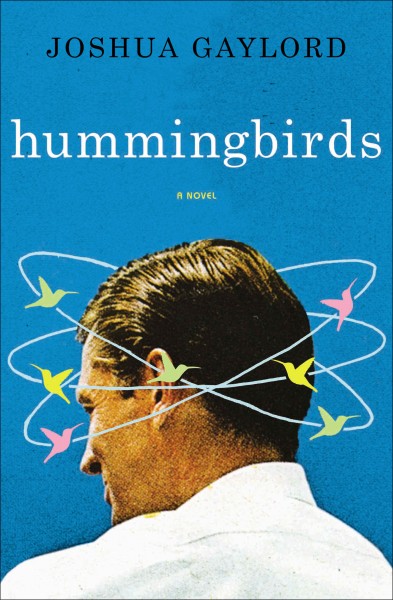 NOW, A GENERAL QUESTION. WHERE DO YOU FIND THE ISPIRATION FOR ALL YOUR STORIES?
NOW, A GENERAL QUESTION. WHERE DO YOU FIND THE ISPIRATION FOR ALL YOUR STORIES?
I believe that most writers find their inspiration in the same place: other books. Honestly, most of my writing is ripped off from novels I’ve adored. It’s one of my dreams to do an annotated edition of “Reapers” where I point to all the references to Mark Twain, Cormac McCarthy, William Faulkner, Zora Neale Hurston, etc. That book is filled to bursting with other books. So that’s where I get my ideas. I may be sitting in a restaurant, eating a sandwich, reading a book—and I’ll think, “This is a great book! I’d love to have written this book. Maybe I can write this book. If I put zombies in it, no one’ll ever recognize it!”.
WHICH ARE YOUR FAVORITE WRITERS?
For me, this is an easy answer: William Faulkner tops every one of my lists. There’s just no one else who writes quite like him. The other writers I keep returning to are James Joyce, Joseph Conrad, Italo Calvino, Virginia Woolf, Neal Stephenson, Daniel Woodrell, Erskine Caldwell, Muriel Spark, Thomas Pynchon, Richard Brautigan and Cormac McCarthy.
AND YOUR FAVORITE FILMS?
So many. A lot of my writing is deeply inspired by Italian filmmakers, actually. Michelangelo Antonioni is one of my favorites, along with Fellini. In addition to those two, I love the films of Wim Wenders, Wes Anderson, Paul Thomas Anderson, the musicals of Busby Berkeley and the silent films of Buster Keaton. Also, I’m a huge fan of the horror films of David Cronenberg, George Romero, Dario Argento and John Carpenter.
SPEAKING ABOUT CINEMA, CAN WE EXPECT ANY WORKS (FILM OR TV SERIES) FROM YOUR BOOKS?
“Reapers” has been optioned by a production company, so I’m hoping it eventually hits the silver screen. The director who has expressed interest in it, Chris Milk, is an amazing talent, so I’d love to see what he does with the story.
THE LAST REQUEST. WHAT PLANS DO YOU HAVE FOR THE FUTURE AND WHAT ARE YOUR DREAMS?
I have a couple more books in the works. One is about Southern California in 1975, and the other is about the ferociousness of adolescence. I’m not sure what dreams I have. I haven’t thought about dreams in a long time, because I feel lucky to have accomplished what I’ve already accomplished. If I can get my future to stay on the same path as my past, I’ll be a happy guy.
AND IT’S WHAT WE ALL HOPE, TO CONTINUE TO READ A LOT OF NEW AMAZING STORIES!


